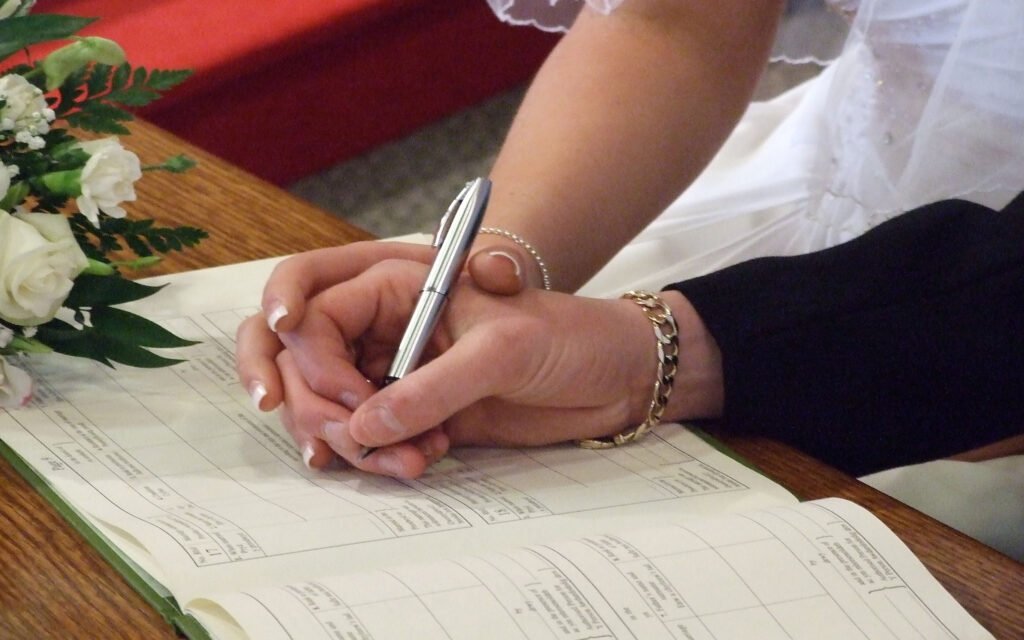The Banking Companies Ordinance 1962 governs Pakistan’s banking industry and associated regulations. As the country’s central bank, the State Bank of Pakistan is empowered to oversee and regulate the entire banking sector under this ordinance. It plays a crucial role in shaping the nation’s banking sector.
Pakistani banking law covers a wide range of topics, including:
The banking law in Pakistan is essential for the stability and safety of the banking system and to protect depositors’ interests.


Online Nikah
Online Shadi
Pakistani Nikah Nama
Online Nikah in Pakistan
NADRA Marriage Certificate
Online nikah & Marriage Documents
Online Nadra Marriage Certificate
English Nikah Nama Form
Urdu Nikahnama Form Online Marriage in Islamabad
Online Nikah in Karachi
Online Marriage in Lahore
Online Marriage in Urdu
Online Shadi in Pakistan
In Pakistan, banking law controls how banks are licensed and regulated by the Banking Companies Ordinance of 1962 (BCO). This law empowers the State Bank of Pakistan (SBP) to oversee and grant licenses to banks operating in Pakistan. A bank’s regulatory framework ensures it functions properly and maintains the trust of its customers. It is all about making the banking system in Pakistan run smoothly and transparently.
An applicant for a license to operate a bank in Pakistan must meet the following requirements:
SBP regulates banks in Pakistan in a variety of ways, including:
If a bank violates applicable regulations, the SBP can take a variety of actions, including:


Growth and development of the economy are promoted. Providing a framework for efficient and effective banking system operation facilitates economic growth and development by allowing businesses and individuals access to financial services.
Overall, banking law in Pakistan plays a vital role in protecting the interests of depositors, preventing financial crime, and promoting economic growth and development.
If you have any questions about banking law in Pakistan, consult our qualified banking lawyer.
Banking law protects the interests of depositors in many ways, including:
Regulatory oversight. Banking regulators, such as the State Bank of Pakistan (SBP), oversee the operation of banks to ensure that they comply with applicable laws and regulations. This helps protect depositors from banks engaging in risky or fraudulent practices.
Overall, banking law provides many important protections for depositors. These protections help to ensure that depositors can entrust their money to banks safely and that they will be able to access their money when they need it.
If you have any questions about how banking law protects the interests of depositors, you should consult our (Qanoon House) qualified banking lawyers.
common banking law disputes in Pakistan include:
There are many ways to resolve banking law disputes, including:
Consult Our qualified banking lawyer to discuss your options if you are involved in a banking law dispute. Our banking lawyer can help you to understand your rights and to develop a strategy for resolving your conflict.
Here are some additional tips for resolving banking law disputes:
Following these tips increases your chances of resolving your banking law dispute.
The future of banking law in Pakistan is likely to be shaped by several factors, including:

Overall, banking law in Pakistan will likely evolve to meet the challenges and opportunities of the changing banking industry.
If you have any questions about the future of banking law in Pakistan, consult our qualified banking lawyer.
When you need expert Banking law services in Pakistan, Qanoon House is here to assist you. Our office is conveniently located at:
Qanoon House
B-74, Arifi Street,
Near The Meadows Banquet,
Johar Hill Road, Block 14,
Gulistan-e-Jauhar,
Karachi, 75290,
Pakistan
For inquiries and consultations, you can reach us at:
Phone: +92 316 1119655
At Qanoon House, our dedicated Banking lawyers are committed to serving your Banking law needs. Contact us today to schedule a consultation, and let us be your trusted partner in all matters related to Banking law in Pakistan.